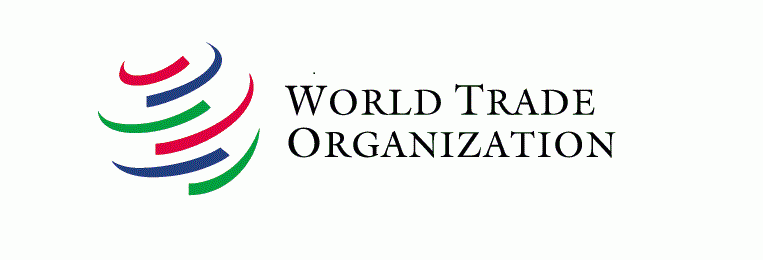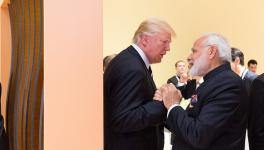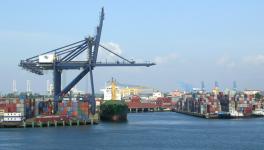Food Security is the Most Crucial Issue for India at WTO Meet

The agenda for the 11th Ministerial Conference of the World Trade Organisation (WTO), to be held in December at Buenos Aires in Argentina, will be decided at the 3rd mini-ministerial conference on October 9 and 10 in Marrakesh, Morocco.
As India gets ready to participate, its most pressing demand is a permanent solution to the issue of public stockholding (PSH) programmes for food security in developing countries – as decided in the two earlier ministerials at Bali in 2013 and Nairobi in 2015.
The G33 group of developing nations (including China, but barring a few members) is demanding that subsidies under the PSH programmes – especially food procurement from farmers at a Minimum Support Price (MSP) – should not be treated as ‘trade-distorting’ subsidies.
As per WTO rules, domestic subsidies given by member nations are classified into colour-coded boxes — green (permitted), amber (to be reduced), red (forbidden). In agriculture, while there is no ‘red box’, there is a ‘blue box’ (subsidies under the ‘amber box’ that also require farmers to limit production).
The ‘amber box’ includes domestic support measures that are deemed by the WTO to be distorting production and trade in the global market.
The WTO defines distortion as “when prices and production are higher or lower than levels that would usually exist in a competitive market.”
Measures to support prices or subsidies directly related to production quantities fall under the ‘amber box’.
Such ‘trade-distorting’ subsidies are capped at 10% of the total value of agricultural production for developing countries.
The G33 (formally led by Indonesia) are demanding that this 10% cap be removed from MSP programmes as they are essential to ensure food security in developing countries.
In a proposal presented in 2015, the G33 have sought an amendment to the WTO’s Agreement on Agriculture so that MSP programmes are exempt from any subsidy reduction commitments, breaching which currently attracts penalties.
Moreover, the WTO’s methodology for calculating subsidies is based on the price index of 1986-88, instead of the current market prices, thereby not accounting for inflation.
India has proposed that the calculation be made on a base year that is a dynamic three years’ average, nearest to the current year.
The G33 coalition is also demanding inclusion of a special safeguard mechanism (SSM) for farmers in developing countries, as agreed upon by members at the Nairobi ministerial meet.
The SSM will allow developing nations to temporarily raise tariffs on agricultural items to deal with unforeseen surges in import or steep falls in domestic prices.
However, the developed nations (including the US, the European Union, Canada, Australia, Japan and Norway) and a few developing countries (including Russia, Brazil, Pakistan, Peru, Thailand, Paraguay and Mexico) are vehemently opposed to PSH programmes being exempt from subsidy reduction commitments.
These countries take the stand that exempting MSP programmes from subsidy reduction limits would result in unlimited market price support.
But as it is, the WTO rules on agricultural trade are massively skewed in favour of the developed countries.
In July, India and China jointly submitted a paper to the WTO, challenging a flexibility provided to developed countries that allows them to concentrate their subsidies on certain farm products. This gives them more leeway in policy decisions and causes major distortions in global agricultural trade.
India and China have rightly demanded that this flexibility be scrapped as “as a pre-requisite for consideration of other reforms in domestic support negotiations”.
Get the latest reports & analysis with people's perspective on Protests, movements & deep analytical videos, discussions of the current affairs in your Telegram app. Subscribe to NewsClick's Telegram channel & get Real-Time updates on stories, as they get published on our website.
























